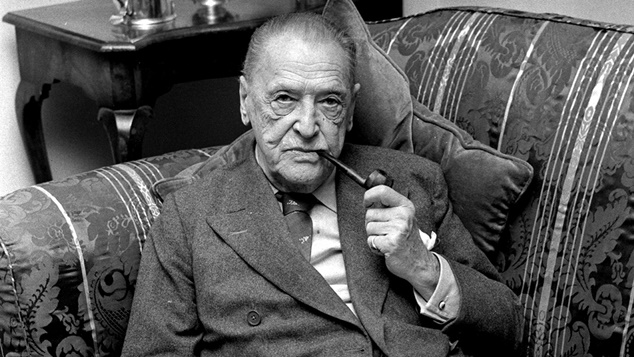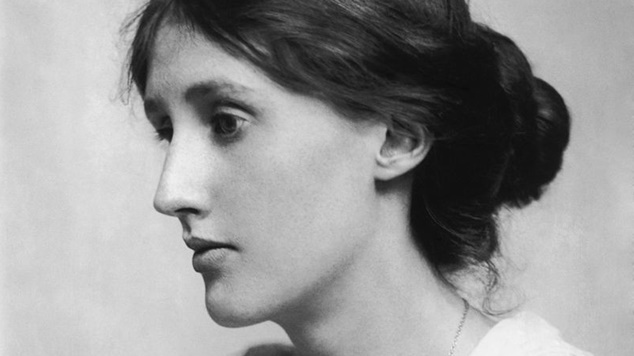Back in 2008, local lesbian magazine Women Out West announced it was closing
On this day back in 2008 Perth based lesbian magazine WOW – Women Out West announced it was closing down.
Publisher and editor Ruth Wykes launched the magazine in 1999 at a time where there was limited lesbian specific media content available in Western Australia.
When the magazine announced it was closing Wykes spoke to OUTinPerth’s Scott-Patrick Mitchell about WOW achieved during it’s nine year run.
“I think it’s given lesbians a voice and a place within the larger community. Certainly I have heard from rural lesbians or coming out lesbians who have picked up WOW and no longer felt isolated.” Wykes said.
“I think it’s provided a forum for debate, a place where we can laugh at ourselves, and a place where we can find out information. And I think it has created an oral history of a time and a place in culture, and particularly for a marginalised community.”

Author Somerset Maugham was born on this day in 1874
English playwright, novelist and short story author Somerset Maugham was incredibly popular in the 1930’s and was reputedly the highest paid author of his day.
Maugham was born in Paris at the British Embassy where his father worked. His parents named him William, he would later use his middle name Somerset as his professional name.
When he was 8 years old his mother died of tuberculosis, and two years later his father passed away from cancer. While his brothers were all in boarding school, young William was sent to live with his uncle who he later remembered as being cruel and unkind.
When he was sixteen he studied at Heidelberg University in Germany and had an affair with scholar John Ellingham Brooks who was ten years his senior. When he returned to Britain he successfully studied to become a physician but he secretly harboured ambitions to be an author.
In 1897 he published his first novel, Liza of Lambeth. It was such a great success he was able to leave the medical profession and become a full-time author.
By 1914 was a famous author with 10 plays and 10 novels to his name, when war broke out he was too old to enlist, so spent his time volunteering in France with the Red Cross. During this time he met Frederick Gerald Haxton, a young man from San Francisco who became his companion for the next three decades.
After the war he released one of his most famous works Of Human Bondage, the work has never been out of print since it’s initial release.
Around this time the author also married Syrie Wellcome, who had previously been married to a wealthy pharmaceutical magnate. The couple marriage was not a happy union, and they soon separated with Maugham moving to French Rivera to live with Haxton.
After Haxton’s death in 1944 he was in a long-term relationship with his secretary Alan Searle until Maugham died in 1965, aged 91. In his will Maugham order that the royalties from his writings go to Searle for the next thirty years, after that they were directed to the Royal Literary Fund.
In his youth Maugham had love affairs with both men and women but in his later years was exclusively homosexual.
He once spoke about his sexuality to his nephew Robin saying, “I tried to persuade myself that I was three-quarters normal and that only a quarter of me was queer—whereas really it was the other way around.”
Over his career Maugham wrote over thirty plays, hundreds of short stories, twenty novels and many non-fiction books as well. Many of his works have been made into feature films.

Virgina Woolf was born on this day in 1882
Virginia Woolf was a British writer, considered one of the most important modernist authors of the 20th century.
She was born in 1882 and grew up in a literary family, her father being a famous literary critic and her half-sisters also writers. Woolf’s early life was marked by personal tragedy, including the deaths of her mother and half-sister, as well as her own struggles with mental health. Despite these challenges, she went on to have a successful and influential career as a writer.
Woolf’s literary career began in the early 1900s, with the publication of her first novel, The Voyage Out, in 1915. She went on to publish several more novels, including Night and Day (1919), Mrs. Dalloway (1925), To the Lighthouse (1927), and Orlando (1928).
Her most famous work, Mrs. Dalloway, is considered a modernist classic and is still widely read today. Woolf’s writing is known for its stream-of-consciousness style and its exploration of the inner lives of her characters.
Woolf was a prominent member of The Bloomsbury Group, an informal association of British intellectuals, writers, and artists. The group was centered around the Bloomsbury neighborhood of London, and included figures such as Woolf, her brother Adrian Stephen, E.M. Forster, Lytton Strachey, and John Maynard Keynes.
The group was known for its progressive attitudes towards art, literature, and society, and they were key figures in the development of modernist art and literature. The Bloomsbury Group was also known for its unconventional personal relationships, many of its members having open marriages or engaging in same-sex relationships.
Virginia Woolf’s sexuality has been the subject of much speculation and discussion. While she was married to Leonard Woolf, she had several close relationships with women throughout her life, including Vita Sackville-West, who was the inspiration for the character of Orlando in Woolf’s novel Orlando: A Biography.
Woolf’s writing often explores themes of gender and sexuality, and many scholars have interpreted her work as being deeply influenced by her own experiences as a queer woman. For example, Mrs. Dalloway explores the fluidity of gender and the ways in which societal expectations shape our understanding of sexuality. The novel Orlando is also considered a reflection of Woolf’s own experiences and perspectives on gender and sexuality. Woolf’s writing is often seen as a reflection of her own experiences and perspectives on gender and sexuality.
Throughout her career, Woolf was a vocal advocate for women’s rights and equality. She was a member of the feminist organization the Women’s Social and Political Union and wrote extensively on the subject of women’s rights. Her famous essay A Room of One’s Own, published in 1929, is considered a landmark work of feminist literature. In it, she argues for women’s right to education and financial independence, and the need for women to have a space of their own in which to write.
Woolf’s influence on literature, feminism, and culture has been significant. She is considered one of the most important and innovative writers of the 20th century, and her works continue to be read and studied around the world.
The importance of Virginia Woolf’s work lies in her ability to explore the complexity of human consciousness and to bring to light the experiences of women, which at the time were largely ignored. Her legacy continues to inspire generations of writers and thinkers.
Virginia Woolf’s death was a tragic event that occurred on March 28th, 1941. She had been struggling with mental health issues for much of her life, and after experiencing a relapse of her condition, she drowned herself in the River Ouse near her home in Sussex, England.
Nicole Kidman portrayed Virginia Woolf in the 2002 film The Hours, directed by Stephen Daldry. The film is based on Michael Cunningham’s Pulitzer Prize-winning novel of the same name and tells the story of three women, including Woolf, whose lives are interconnected by Woolf’s novel Mrs. Dalloway. Kidman’s portrayal of Woolf received widespread acclaim, and she won the Academy Award for Best Actress for her performance.
This post was first published in 2021 and has been updated. Photograph of Virgina Woolf by George Charles Beresford.
Do you need some support?
If you are struggling with anxiety or depression, support and counselling are available from:
QLife: 1800 184 527 / qlife.org.au (Webchat 3pm – midnight)
QLife are a counselling and referral service for LGBTQIA+ people.
DISCHARGED: info@discharged.org.au / discharged.org.au
Discharged is a trans-led support service with peer support groups for trans and gender diverse folks.
Lifeline: 13 11 14 / lifeline.org.au
Beyondblue: 1300 22 4636 / www.beyondblue.org.au
You can support our work by subscribing to our Patreon
or contributing to our GoFundMe campaign.





